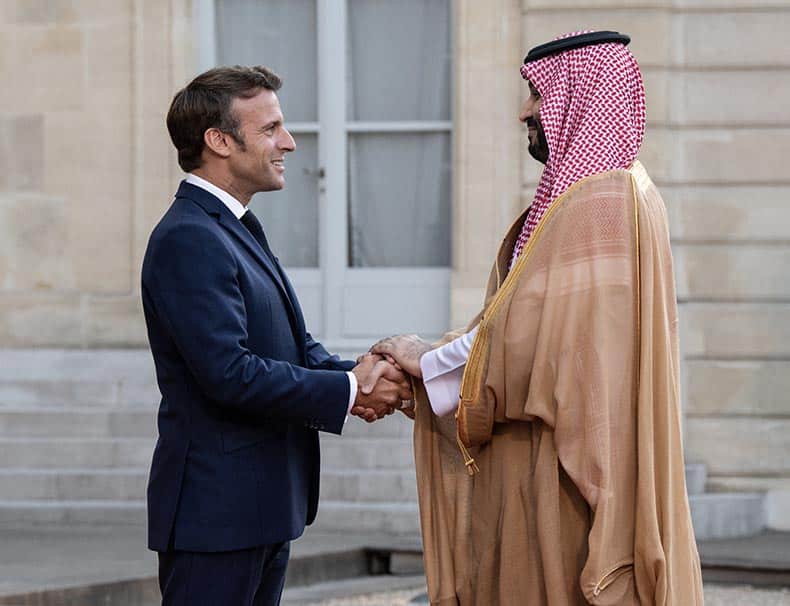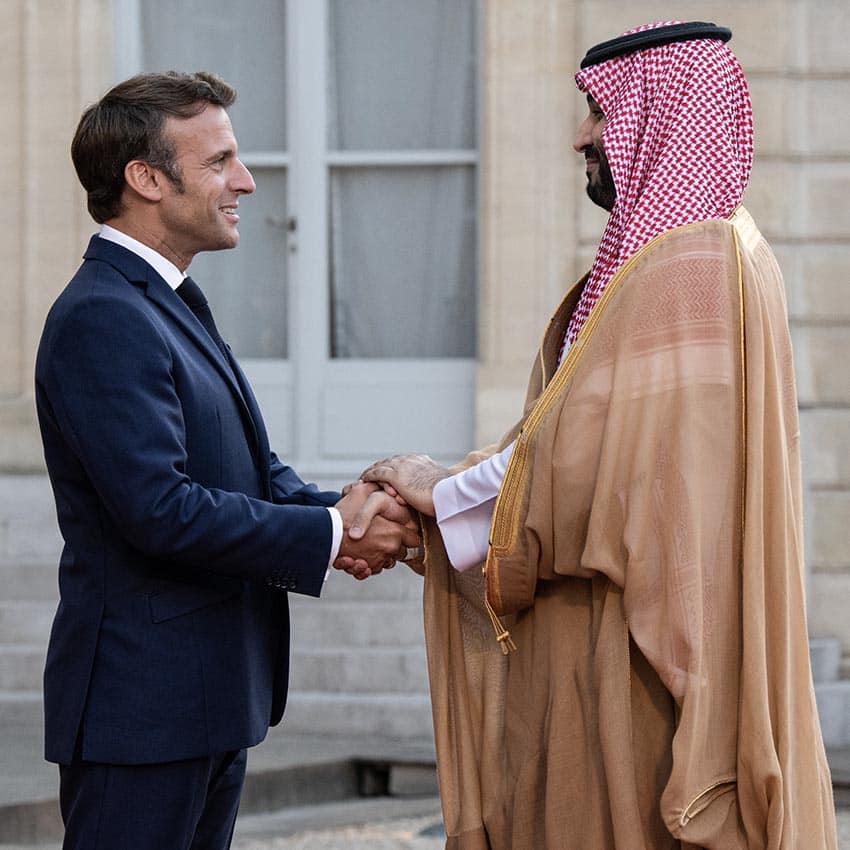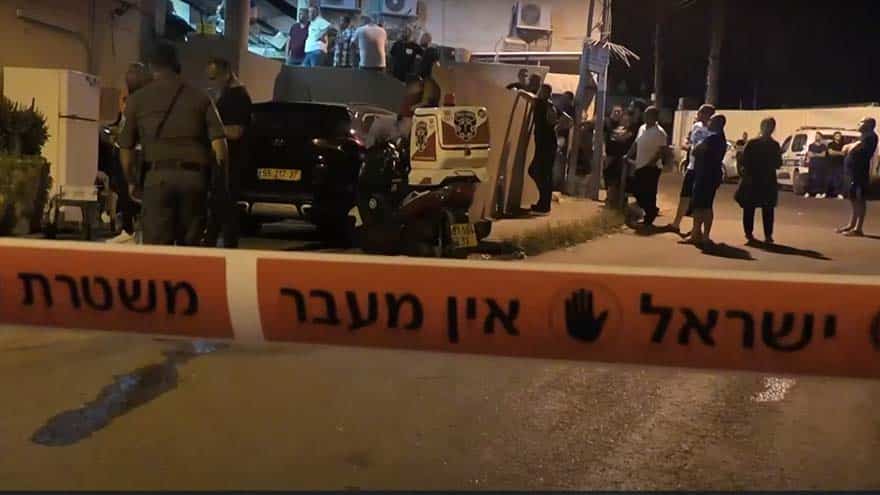This past July, 19 countries took part in a conference convened at the UN headquarters in New York, initiated, organized, and led by France and Saudi Arabia. Its purpose was to pave the way for expanding recognition of a Palestinian state within the framework of the upcoming UN General Assembly session scheduled for September. The announcement by France and other countries of their recognition of a Palestinian state at the General Assembly would join 142 states that have already done so, most since the 2012 General Assembly.
France took care to organize the conference with all the pomp and diplomatic grandeur, accompanied by resounding fanfare, with its concluding statement titled “The New York Declaration on a Peace Settlement Regarding the Palestinian Issue and the Implementation of the Two-State Solution.” The French, with the assistance of Saudi Arabia—their partner in the initiative—made every effort to center and focus national attention on the event and to present it as highly significant, both in terms of its content and essence, and regarding the number, importance, and very participation of the states that joined the concluding statement. In addition, France emphasized the statement’s impact on the global order, insofar as it relates to the Palestinian issue and the Israeli-Palestinian conflict.
A close reading of the concluding statement reveals the deep entrenchment of political thinking in the international arena—at least as far as France is concerned, representing both Europe and the non-European states that attended the conference—as well as the weakness of international diplomacy and its harmful, detrimental contribution to conflict resolution in general, and to the possibility of making any breakthrough in the Israeli-Palestinian conflict in particular.
Moves Whose Outcome Is the Weakening of Israel
The statement seeks to advance the establishment of a Palestinian state in the spirit of the Oslo Process’s two-state paradigm—as opposed to the two nation-state paradigm—through ending the war in the Gaza Strip, returning the Palestinian Authority to control and govern the Strip, and linking it to the West Bank as a single political and territorial entity. However, along the way, the statement once again absolves the Palestinians of real responsibility, despite several statements—vital in themselves—regarding changes the Palestinians must make, such as the need for Hamas to disarm and not participate in governing Gaza in the “day after,” and condemning the October 7 attack. This concluding statement represents a moral failure and political folly, as it ignores crucial lessons from the past and replicates distortions and mechanisms that perpetuate the conflict.
The statement is devoid of any sound and reasonable political logic—or even moral logic, insofar as morality still plays a role in international diplomacy—when it is interpreted as an achievement for Hamas, at least in its own eyes. Hamas leaders present the return of the Palestinian issue to the top of the international community’s agenda, including the statement itself, as a result of the October 7 attack.
The French, seeking a role and influence in the Middle East through what they see as the most significant gateway or springboard—the Israeli-Palestinian conflict—ignore past lessons and insist on clinging to old formulas and failed mechanisms of action, aiming for a process and outcome whose result is the weakening of Israel. The Saudi motivation may perhaps be explained as an attempt to appease domestic public opinion, unlike the French, who harbor trust and even a kind of historical-moral commitment to the Palestinians, rooted, it seems, in colonial guilt mixed with a highly critical attitude toward Israel, perhaps even tinged with antisemitism.
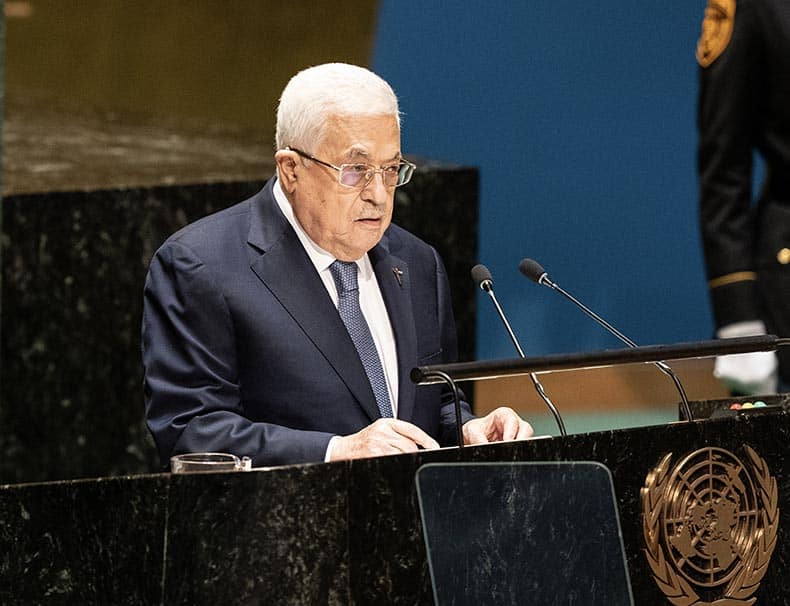
The Saudi leadership despises Hamas, is highly critical of the Palestinian Authority, and does not truly feel a deep commitment to the Palestinians beyond paying lip service. Saudi Arabia’s strategic interests lie in entirely different realms, and cooperation with Israel—even if not through formal normalization and not publicly—is, in their eyes, far more preferable, essential, and desirable. Even if, following the war in Gaza and the harsh images reaching Saudi citizens, the royal house makes stronger declarations in favor of the Palestinians and the establishment of a Palestinian state, this does not, from its perspective, constitute a precondition for advancing normalization with Israel.
One of the most glaring distortions in the conference’s concluding document is the persistent and systematic effort to maintain strict and almost sacred symmetry between the Palestinians and Israel whenever terrorism and incitement are mentioned—as if there were truly grounds for such balance. The very effort to create this symmetry—where every call in the document for the Palestinians to cease terrorism and incitement is immediately paired with a similar demand of Israel—serves not only to dilute Palestinian responsibility for eradicating these phenomena, but also to provide them with a condition or excuse for not doing what they must do with urgency and determination whenever Israel does not act.
And Still Clinging to the “Right of Return”
Unsurprisingly, when it comes to France and others who refuse to learn the lessons of history, the guiding principle of the sacred and “necessary” symmetry disappears when the document reaches the matter of the Palestinian people’s right to self-determination. This right is mentioned three times, while the Jewish people’s right to self-determination is not mentioned even once. The focus on the Palestinian right to self-determination, while ignoring that of the Jewish people, reflects adherence to the Palestinian agenda and its interpretation of the two-state paradigm.
From the Palestinian perspective—while ostensibly supporting the Oslo process—the two-state solution means Palestine as the nation-state of the Palestinian people, and Israel as a state of all its citizens, stripped of religious, cultural, and national identity. This is why they stubbornly refuse to add the word “nation” to the formula or slogan of the two-state solution. From Israel’s perspective, this is the core of the conflict: the Palestinian refusal to recognize the Jewish people’s right to self-determination—meaning Israel as the nation-state of the Jewish people within any borders. The most significant basis for this principled refusal is the insistence on the “right of return,” the persistent preservation of the refugee ethos, and the broad public support among Palestinians for continuing armed struggle, as consistently reflected in opinion polls, collective behavior, and their cultural heroes.
The statement’s authors also did not forgo citing Resolution 194 in the context of the Palestinian refugee problem, without offering any alternative interpretation to the Palestinian one, which relies on it as a source of authority for the idea of the right of return. To reinforce the Palestinian refugee ethos, the authors call for the renewal of UNRWA’s operations, which failed. Corrupt mechanism controlled by Hamas in the Gaza Strip, which allows, or at least does not object to, the use of its facilities by the terrorist organization for military purposes, and some of whose employees actively participated in the October 7 attack, while others hid hostages in their homes. The fact that over the years, UNRWA has become a mechanism for perpetuating the refugee ethos, the right of return, and the sanctification of armed struggle, did not lead the statement’s authors to a fresher, more sober assessment of the organization or the issue. The historic attachment to UNRWA is yet more proof that historical folly—even when proven as such—can continue to exist, and even be revived and strengthened.
Completely ignoring the changes that have occurred on the ground since 1967, and the agreements already established in negotiations with the Palestinians regarding land-swap formulas or principles—which would leave settlement blocs, including the Jewish neighborhoods built around Jerusalem—in Israeli hands, the statement’s authors call for a complete Israeli withdrawal to the 1967 lines, including from East Jerusalem.
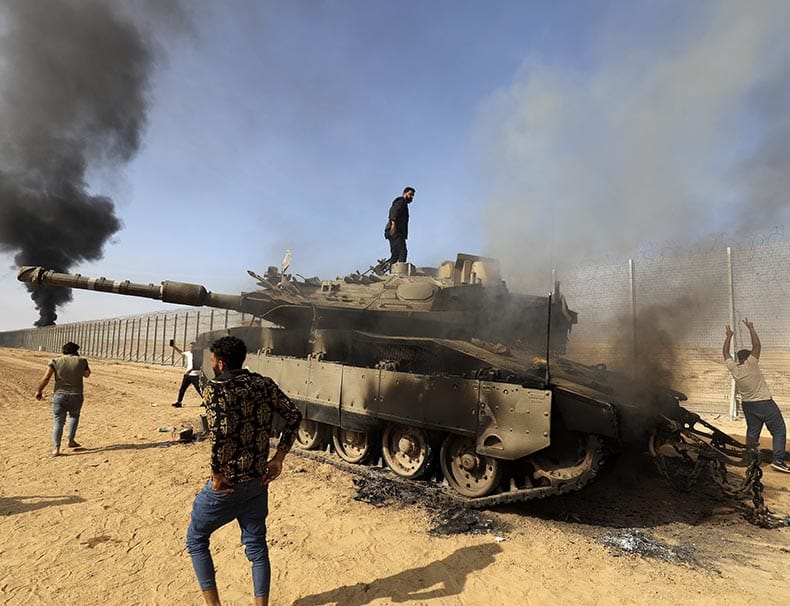
No Peacekeeping Force – and Certainly No Peace
One of the sharpest and most troubling expressions in the document of the French-Saudi initiative’s complete irrelevance is found in its solemn recommendations regarding the day after in the Gaza Strip. Alongside an essential statement about disarming Hamas and ensuring it plays no role in the governing framework of Gaza on the day after, the authors call for the establishment of a UN peacekeeping force, or one led by the UN. Yet this call is framed merely to acknowledge the need to draw lessons from past peacekeeping missions in the region, to help build such an “effective” force.
This peacekeeping force would supposedly be responsible for disarming Hamas and securing the Gaza-Israel border, after the complete withdrawal of IDF forces from Gaza, including the security perimeter. The seriousness with which the document treats the idea of a UN force would almost be amusing were it not so concerning—given the total disregard for the proven failure of every peacekeeping force in our region since 1967. The statement’s authors add insult to injury by calling for the reactivation of EUBAM. This European monitoring mechanism operated at the Rafah crossing from the 2005 disengagement until Hamas’s takeover of Gaza in June 2007. If anyone still needs reminding: after Hamas’s takeover, the mechanism was scattered, its personnel fleeing Gaza in panic and returning to their home countries.
The yearning for fantasy also leads the statement’s authors to lofty phrases about the democratic Palestinian state that will arise alongside the State of Israel. With Egypt, Turkey, and Saudi Arabia signing such a declaration, the reader can only gape at the exalted rhetoric of democracy coming from these countries, which are “models” of democracy in the region.
The conference’s concluding statement, therefore—despite addressing a few important issues—is an unmistakably pro-Palestinian and anti-Israeli document, incapable of advancing the day after in Gaza or the establishment of a democratic Palestinian state alongside Israel in the spirit of the Oslo accords. The document reflects a complete and troubling detachment from reality—whether in ignoring historical lessons; in clinging to the Palestinian ethos of victimhood and refugeehood, and reviving it through reference to Resolution 194 and the recommendation to reinstate and strengthen UNRWA; or in wholly disregarding the core reasons for the conflict, the foremost being Palestinian opposition to the Jewish people’s right to self-determination.
The recommendation to deploy UN peacekeeping forces as an “effective and relevant” mechanism for Gaza’s disarmament and Hamas’s dismantling, the presumption of entrusting such a force with Israel’s border security, and the fervent belief in establishing an alternative civilian administration in Gaza under Palestinian Authority leadership but with armed Hamas members still present—all of these are nothing less than nails in the coffin of the initiative, which died at birth and will become just another inconsequential document, born of the weakness and moral bankruptcy of international diplomacy.
